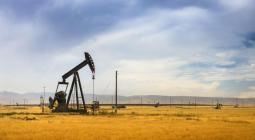Outrage as Italy faces multimillion pound damages to UK oil firm.

Secretive tribunals allow fossil fuel companies to sue governments for passing laws to protect environment.
Italy could be forced to pay millions of pounds in damages to a UK oil company after banning new drilling near its coast.
The case has sparked outrage at the secretive international tribunals at which fossil fuel companies can sue governments for passing laws to protect the environment – amid fears that such cases are slowing down action on the climate crisis. It is also fuelling concern that the UK is particularly exposed to the risk of oil firms suing to prevent green policies, potentially hampering climate action.
Rockhopper Exploration, based in Salisbury, Wiltshire, bought a licence to drill for oil off Italy’s Adriatic coast in 2014. There had already been a wave of opposition to the project, with protests that drew tens of thousands of people. Within two years, the campaign won over the Italian parliament, which imposed a ban on oil and gas projects within 12 nautical miles of the Italian coast.
Rockhopper fought back using a relatively obscure legal mechanism known as investor-state dispute settlement (ISDS), which allows companies to sue governments for introducing policies that could affect their future earnings. Reports suggest Rockhopper has spent $29m (£21m) on the offshore project to date and is claiming damages of $275m based on expected future profits from the oilfield.
The company said it has been advised that it has “strong prospects of recovering very significant monetary damages” as a result of Italy’s actions.
Devised in the 1950s by a banker and the chief counsel for oil company Royal Dutch Shell, ISDS was designed to protect companies’ investments in newly independent countries, where it was feared that governments might try to wrest back control of their natural resources. The concept gradually took hold and it is now written into thousands of investment treaties worldwide.
Decades later, fossil fuel companies are using it to protect their assets, this time in the face of an oncoming wave of climate legislation.
That is because ISDS is part of the energy charter treaty (ECT), meaning energy companies can sue any of the 53 signatory countries – including the UK – if they take action that could dent those companies’ future earnings, such as banning the exploitation of coal, oil and gas reserves.
The German energy company RWE, for instance, is suing the Netherlands for €1.4bn (£1.2bn) over its plans to phase out coal.
Cases like these could slow down action on the climate crisis, as governments await the outcome of legal battles that could take years to resolve. Ruth Bergan, senior adviser at the campaign group Trade Justice Movement, says: “People are watching these cases and there is evidence that they look at what is happening elsewhere and it puts the brakes on their own policies. It also just adds a huge price tag to climate action and we can’t afford it.”
While the UK has not yet been sued under the ECT, an analysis by Investigate Europe shows it is the most vulnerable of all the countries in Europe, with more than £120bn worth of fossil fuel infrastructure owned by foreign companies. Bergan says there is concern that the UK could delay or water down climate change legislation for fear of being sued.
Lawyers confirm that governments are acutely aware of the threat of litigation when developing policy. Toby Landau, a top QC in ISDS cases, said in an interview with the London School of Economics: “As a practitioner, I can tell you that there are states who are now seeking advice from counsel in advance of promulgating particular policies in order to know whether or not there is a risk of an investor-state claim.”
There have been lengthy talks aimed at reforming the treaty, which resumed this month, but a leak of diplomatic cables suggests they face failure.
France and Spain both want to withdraw from the treaty, but that would not protect them from claims related to past investments. Italy left the ECT in 2016 but is being sued under a “sunset clause” that means former members are subject to the treaty for 20 years after they have left.
Several London-listed companies have recently launched lawsuits under ISDS, including mining companies Anglo American and Glencore, which are suing the Colombian government after they were banned in 2017 from exploiting part of a huge opencast coalmine because of its impact on the environment.
Aim-listed Ascent Resources is suing Slovenia after the country’s environment agency asked it to carry out an environmental assessment (EIA) before embarking on a fracking project, which activists say could pollute critical water sources nearby.
Ascent said six of Slovenia’s government ministries and conservation organisations concluded that an EIA was not required so the request was “manifestly arbitrary and unreasonable”.
ISDS is considered particularly powerful because a state’s assets abroad can be seized in order to pay any damages. Scottish oil and gas company Cairn Energy, for example, is attempting to seize the planes of state-owned Air India after India was ordered to pay the company $1.2bn in damages under ISDS.
Proponents say that by protecting companies from unfair treatment by governments, ISDS encourages foreign investment. Guillaume Croisant, managing associate at Linklaters, a magic circle law firm active in ISDS arbitrations, says: “For many companies, what is important is the deterrent effect of those protections.”
The main criticism of ISDS is that the justice it provides is imbalanced because governments cannot sue companies and it is only open to foreign investors. In the past, the cost of legal fees – which average $8m a case – has also made it the preserve of multinational corporations. A number of specialist funders have, however, emerged offering a “no win no fee” service for international arbitrations.
Rockhopper, which used one of these services to bring its ISDS case, has a stock market value of just £42m, so an ISDS award potentially worth hundreds of millions of pounds would be significant for its finances.
Daniel Slater, an analyst at stockbroker Arden Partners, says any windfall would be “tremendously helpful” for funding Rockhopper’s project off the coast of the Falklands – an as yet untapped oilfield containing 1.7bn barrels of oil which, if burned, could produce around one and a half times the annual greenhouse gas emissions of the UK, according to the climate thinktank Ember.
Asked how that project fits with the International Energy Agency’s warning against investing in new fossil fuel projects, Rockhopper declined to comment.
25 July 2021
The Guardian




